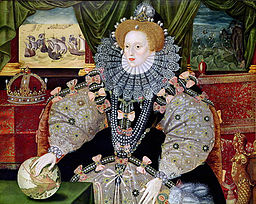I've been working on a couple of academic writing projects today, and I'm struck by how much tedium is involved. Notice I didn't say 'how tedious they are'; I find both project intellectually engaging and worthwhile.
 So my idle thought is this: Perhaps the format of undergrad and grad work encourages a short attention span, which becomes a handicap later on. I can only speak to classics work, since that's my experience. No matter how gifted and diligent my students are, it is a rare college student indeed who has any notion of the kind of sustained attention a dissertation or article takes. Even we junior scholars are not immune. With the current article I'm working on, I still occasionally fall back into those grad student thought patterns: "You mean I defended my argument and put in a few footnotes on each page? And I'm still not done?"
So my idle thought is this: Perhaps the format of undergrad and grad work encourages a short attention span, which becomes a handicap later on. I can only speak to classics work, since that's my experience. No matter how gifted and diligent my students are, it is a rare college student indeed who has any notion of the kind of sustained attention a dissertation or article takes. Even we junior scholars are not immune. With the current article I'm working on, I still occasionally fall back into those grad student thought patterns: "You mean I defended my argument and put in a few footnotes on each page? And I'm still not done?"Offering students, at the very least, projects that span multiple terms might help them decide if academe is for them and help them figure out good work habits before the stakes get too high.
image credit Pin It




